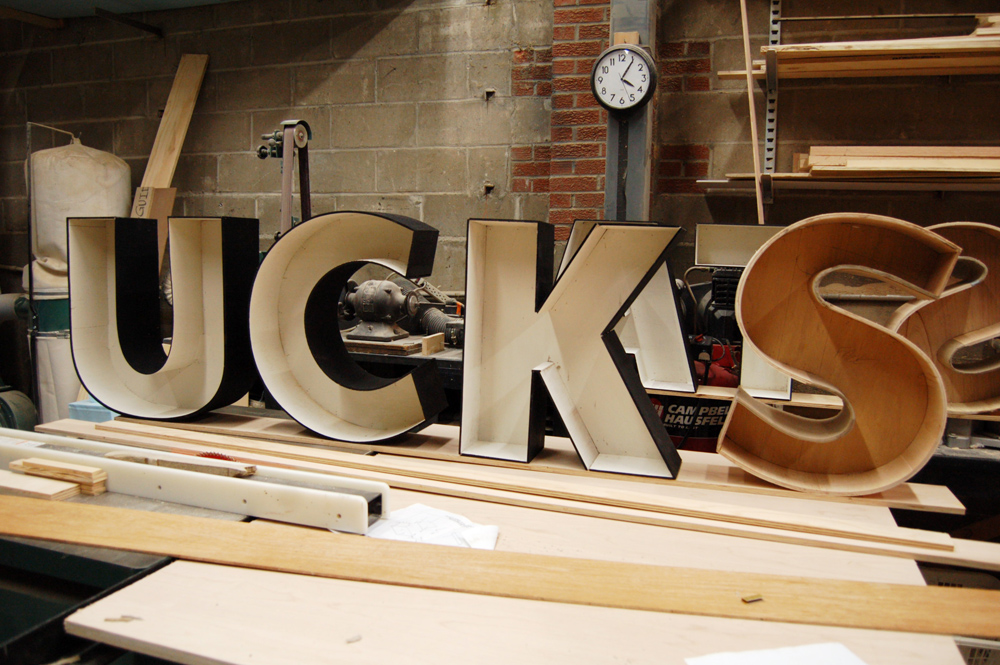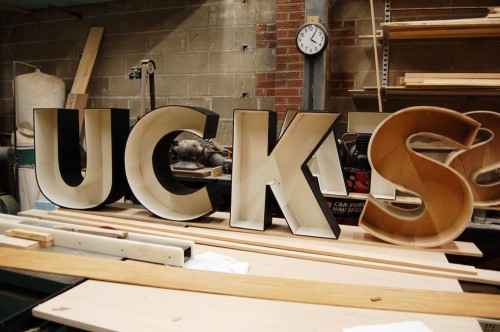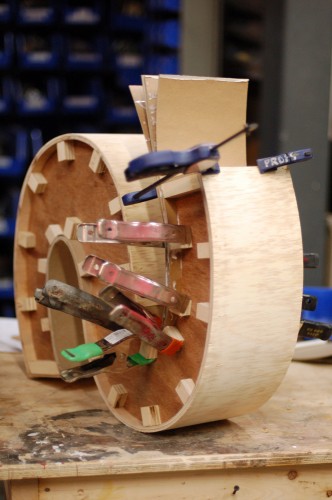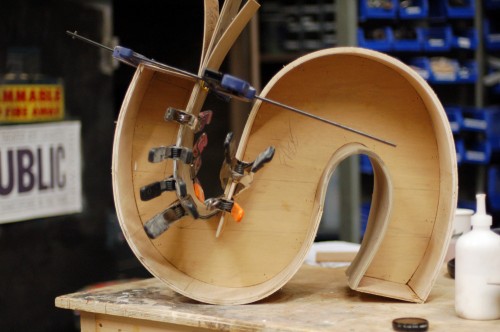I’ve run across shops and artisans who tend to avoid Medium Density Fiberboard, or MDF. MDF is an engineered lumber product made of sawdust bonded together with a urea-formaldehyde adhesive. When you work with MDF, the dust you release also contains this formaldehyde, which you may end up breathing. So is that really that bad? The short answer is “yes, with a but”, while the long answer is “no, with an if”. Like any other substance or material used in a props shop, the safety of using it is dependent on knowing the risks and possible hazards and taking the appropriate precautions. After all, people can safely work with plutonium if their shop is set up correctly and they wear the appropriate gear.
Let me start off by saying yes, you should avoid breathing MDF dust. Formaldehyde is suspected of being a carcinogen, and MDF has some of the highest concentration of urea-formaldehyde adhesives out of all the engineered wood products that use it. Other products which use UF adhesive include hardwood plywood and particle board. Some products, such as softwood plywood and oriented strand board, use phenol-formaldehyde resin which emits much lower concentrations of formaldehyde. Nonetheless, when working with these products, you should have appropriate dust collection at the source of dust creation, proper ventilation and air filtration, and wear an appropriate personal respirator (a NIOSH-approved dust mask for particulates) when sawing or sanding.
So if it’s unwise to work with MDF without proper safety precautions, why am I asking the question in the title of this post? Here’s what I’ve seen; some shops avoid or even downright ban the use of MDF because of what they’ve heard about UF adhesives. This is absurd for several reasons. First, all materials are “bad” to some extent. A better way to phrase that is to say that all materials require you to understand what the potential hazards are and how to minimize them. If you are barbecuing in a grill, you know there is a potential for things to catch fire, so you have a fire extinguisher close by. If you understand why MDF is potentially harmful, then you can figure out how to minimize those harms; if your shop is unable to minimize those harms, than its use should be avoided.
My second point is this: if a shop avoids MDF because the dust gets in the air and employees breath it, it implies a larger safety issue. While formaldehyde is a suspected carcinogen, sawdust itself is a known carcinogen. Let me repeat that: sawdust is a known carcinogen (see here). If you allow sawdust to fill the air of your shop, you are basically filling your shop with carcinogens. So a shop or person that avoids MDF because the dust gets in the air is still allowing the dust from other products to fill the air, which is just as harmful to breath as MDF dust.
If you work with lumber of any kind, the proper precautions include dust collection at the source, ventilation in the whole shop, and the use of a personal respirator. These are the exact same precautions you need for using MDF. Also, the proper safety protocol in a shop is to keep track of all substances which you may be exposed to and take the recommended precautions to minimize exposure.
Thus, avoiding MDF in a wood-shop implies that not only does one not know proper safety protocols, but that one is exposing workers to other potentially hazardous dust. So my question, “Is MDF really that bad for you?”, has the same answer as every other substance. If you know the potential harms and how to minimize them, then it is no more “bad” than any other hazardous and toxic material you work with to build props. In other words, the proper question isn’t whether MDF is “bad” (it is, but so is everything else you use), it’s whether your safety procedures are bad.




